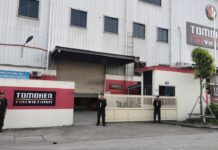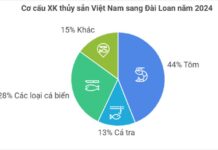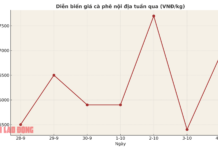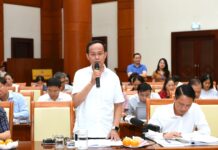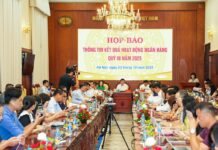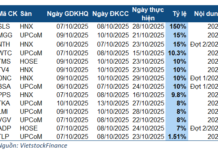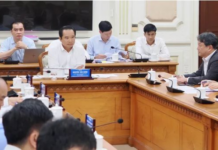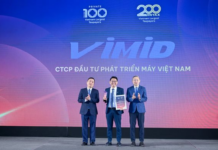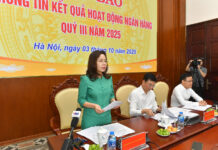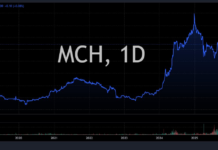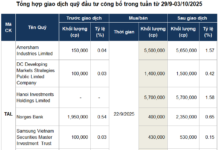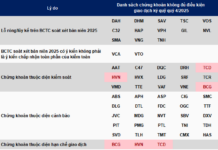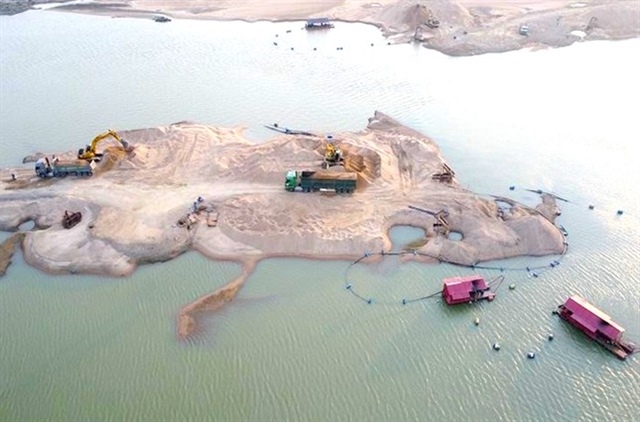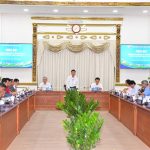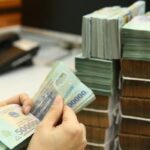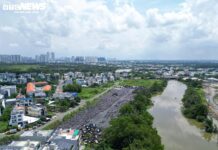The Government Inspectorate has issued Conclusion No. 263, dated July 19, on the inspection of the responsibilities of the People’s Committee of Gia Lai province in managing and using land with origins from agricultural and forestry farms, as well as in exploiting sand, soil, rocks and gravel, and in managing investment construction in the province.
Wastefulness in public investment
Conclusion 263 has pointed out a series of violations in many fields in Gia Lai province during the 2016-2020 period, notably in the management of public investment.
Specifically, in the implementation process, the People’s Committee was slow to develop a document announcing the prices of construction materials in the province, causing difficulties in making investment project estimates; and slow to issue directives and urge the implementation of bidding through the network according to the prescribed roadmap. The People’s Committee also loosened management, lacked inspection, and failed to direct the implementation of a detailed plan for monitoring, supervising and inspecting bidding in accordance with regulations.
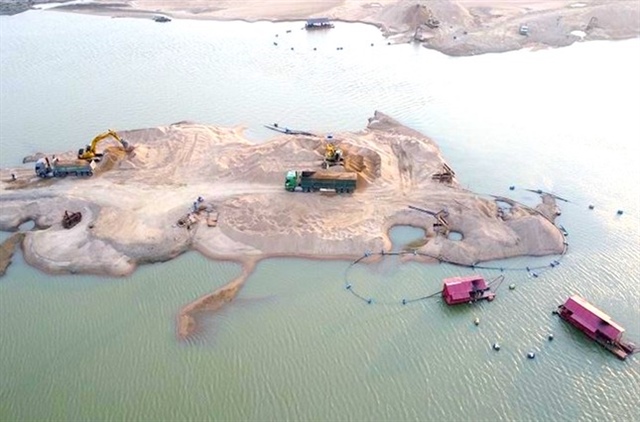
A sand mine with violations in Krong Pa district, Gia Lai. |
For example, in the formulation, appraisal and approval of the public investment plan, the decision on investment policy and the investment decision for some projects were not realistic, posing a risk of wasting resources. Typically, the project to renovate the headquarters of the Gia Lai Provincial Party Committee had an estimate that was not realistic, so during the implementation process, in 2017, the scale had to be adjusted, increasing the total investment from VND 25 billion to VND 43 billion, causing wastefulness.
For the Mnui Lake channel project (in Dun commune, Chu Se district), money was spent on making, appraising and managing the technical-economic report, but there was no item of compensation cost for site clearance, which was irresponsible, leading to the project not being implemented because the area had not been cleared.
In particular, for the Djang Irrigation project (in Kbang district), in 2017, the People’s Committee approved the investment policy irresponsibly, leading to the suspension of the project because the project area affected 4.3 hectares of protective forest.
The allocation and arrangement of medium-term public investment capital for 2016-2020 was slow, lacking, and delivered in many batches, which was not realistic, leading to adjustments and supplements to the medium-term public investment plan eight times, but the total arranged capital was still lacking compared to the approved plan by VND 1,518 billion.
Especially, the approval of investment projects in a scattered manner has led to the implementation exceeding the capacity to balance the sources of capital, resulting in 32 projects falling behind schedule and being left unfinished due to a lack of capital, having to be transferred to the 2021-2025 period with a total capital of VND 1,931 billion, posing a risk of wasting the state budget due to fluctuations in the prices of raw materials and labor.
In addition, the Hoi Phu Stream embankment project, with the investor being the Management Board of Investment Construction Project of Pleiku City, had violations such as: For Package No. 1 (section Km1+440 – Km 1+760), the investor agreed for Trung Kien Co., Ltd. to sign a subcontract worth more than VND 23.2 billion (equivalent to 70% of the value of the contract performed by Trung Kien Company), violating the prohibited acts in bidding; some companies that won the bid had forged similar contracts to participate in the bidding and won the bid.
Arbitrary mine licensing
Conclusion No. 263 also pointed out many violations in the exploitation of sand, soil, rocks and gravel. Accordingly, in the period of 2016-2020, the People’s Committee organized auctions for mining rights for 74 mines (16 mines for construction stones, 39 sand mines, 8 filling soil mines, 9 clay mines and 2 peat mines).
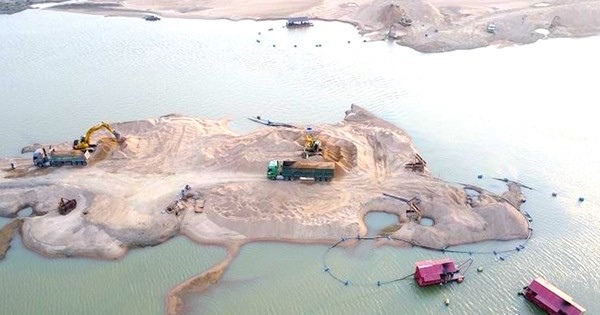
Hoi Phu Stream embankment project. |
Gia Lai province still has 206 mines in the plan that have not been licensed. However, in the above period, the People’s Committee approved the addition of a plan for exploration and exploitation of minerals for 53 mines without obtaining the opinions of the Ministry of Natural Resources and Environment and relevant ministries and branches, which is a violation of regulations. The compliance with the information reporting regime on the results of mineral activities of the People’s Committee (in 2019 and 2020) to the Ministry of Natural Resources and Environment is still not in accordance with regulations, violating the Government’s Decree 158/2016.
As of June 30, 2021 (according to the report of the Provincial Tax Department), there were 7 units in Gia Lai province that owed more than VND 15 billion in mining license fees, but the competent authorities had not yet taken measures to urge and collect them into the state budget.
Notably, there was a sand mine project that, after being licensed, did not sell sand to serve the construction of the Ho Chi Minh Road, the section of the bypass road through Pleiku city as prescribed in the approved policy, but sold it to other construction works, which was not in line with the approved policy and license, causing a waste of mineral resources.
At the land plot (in Ia Sao commune, Ayun Pa town) next to the clay mine of Phu Bon Joint Stock Company, there was an area of about 3.3 hectares of clay (which has not been licensed for exploitation by the People’s Committee) that had been illegally exploited. Of which, an area of 9,167 square meters had been exploited by Hoang Khanh One-Member Limited Liability Company; about 2.4 hectares were exploited many years ago to serve the construction of works in the area.
Through a series of violations, the Chief Government Inspector proposed that the Prime Minister direct the pointing out and handling of responsibilities of the collective and individuals who are leaders of the People’s Committee of Gia Lai province in the 2016-2020 term and related periods for the shortcomings, existence and violations related to the management and administration responsibilities mentioned in the Conclusion; and request the Chairman of the People’s Committee of Gia Lai province to promptly implement measures to overcome and handle the existences and violations mentioned in the Conclusion in accordance with regulations, and report the results to the Government Inspectorate.
Tien Le
The Power of Lizen: Consistently Winning Massive Bids
Lizen has achieved a significant milestone by successfully deploying and implementing major high-speed construction projects in 2023. The company’s revenue has reached 2,030.5 billion VND, which is twice the amount compared to 2022. However, the post-tax profit has reached its lowest point in the past 6 years, dropping down to only 118.3 billion VND.
Three Economic Growth Scenarios for Ho Chi Minh City in Q1 2024
At the socio-economic meeting reviewing the results of January and setting the goals for February 2024, held this morning (1/2), the Ho Chi Minh City Institute for Research and Development has presented three economic growth scenarios for the first quarter of Ho Chi Minh City.
Supplemental Funding of Nearly 30.7 Trillion VND for Mid-Term Public Investment Plan
Deputy Prime Minister Le Minh Khai has assigned a budget of 30.683,441 billion dong to supplement the medium-term public investment plan for the 2021-2025 period from the central budget. This source of funding will be used to support infrastructure development and promote economic growth. The goal is to ensure that the investment projects are implemented effectively and contribute to the overall development of the country. With this additional funding, Vietnam aims to improve its transportation system, upgrade its public facilities, and enhance the quality of life for its citizens. The government believes that investing in infrastructure is crucial for sustainable development and will create favorable conditions for attracting domestic and foreign investments. The Deputy Prime Minister emphasized the importance of transparency and accountability in the implementation of these projects to ensure the efficient use of public funds. The government also encourages the participation and contribution of the private sector in these initiatives to maximize the benefits for the whole society.

